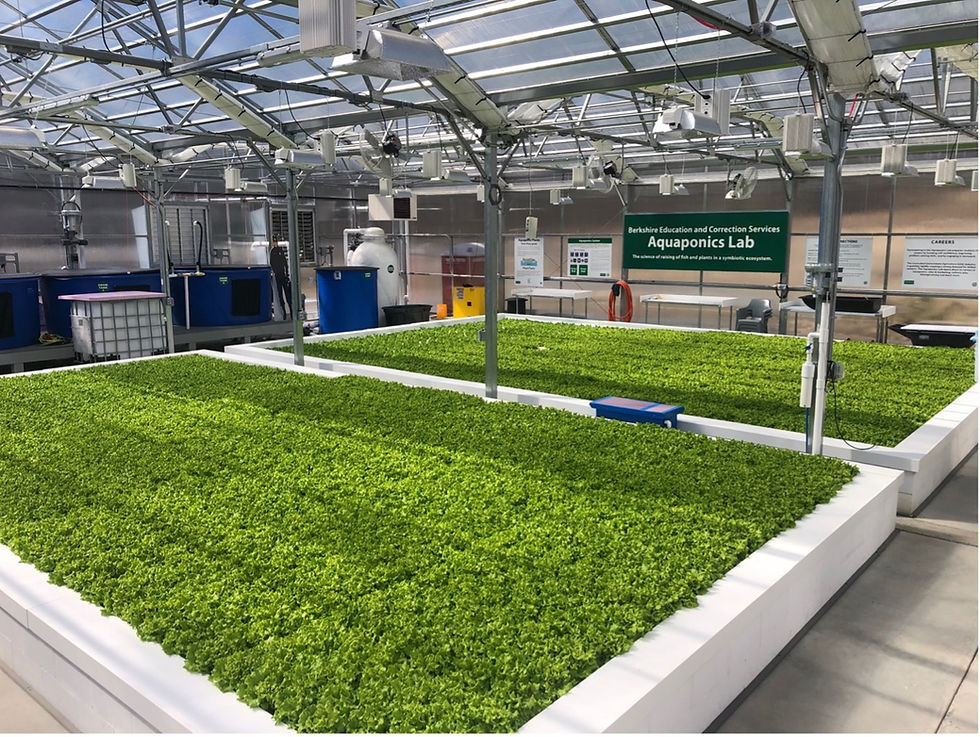
More than 200,000 heads of lettuce have been donated to the community thanks to a groundbreaking aquaponics program for inmates at the Berkshire County Sheriff’s Office in Massachusetts. Through this program, inmates are learning how to grow fresh vegetables and skills for a fresh start for re-entry back into the community.
What is Aquaponics? Aquaponics is a method of farming that combines raising fish and vegetables. The nutrients the fish produce in the water are used as a natural fertilizer for vegetables to grow.

When the vegetables absorb those nutrients, it provides the fish with fresh, purified water. This process is sustainable through the continuous recycling of water and nutrients. There is no soil involved, and there are no other nutrients added, the water is constantly circulating between plants and fish.
While raising fish and producing produce, the facility also provides inmates with valuable skills that can be transferred to life outside of the jail.
The Process The idea for the aquaponics program came when former Berkshire County Sheriff’s Office Superintendent, John Quinn, struck up a conversation with a gentleman sitting next to him on a plane. Quinn talked with Sam Fleming, founder of 100 Gardens, a nonprofit organization that provides learning opportunities through the implementation of aquaponics programs in schools, institutions, and communities in need. After Sheriff Thomas Bowler heard about the program, he wanted to bring it to the jail.
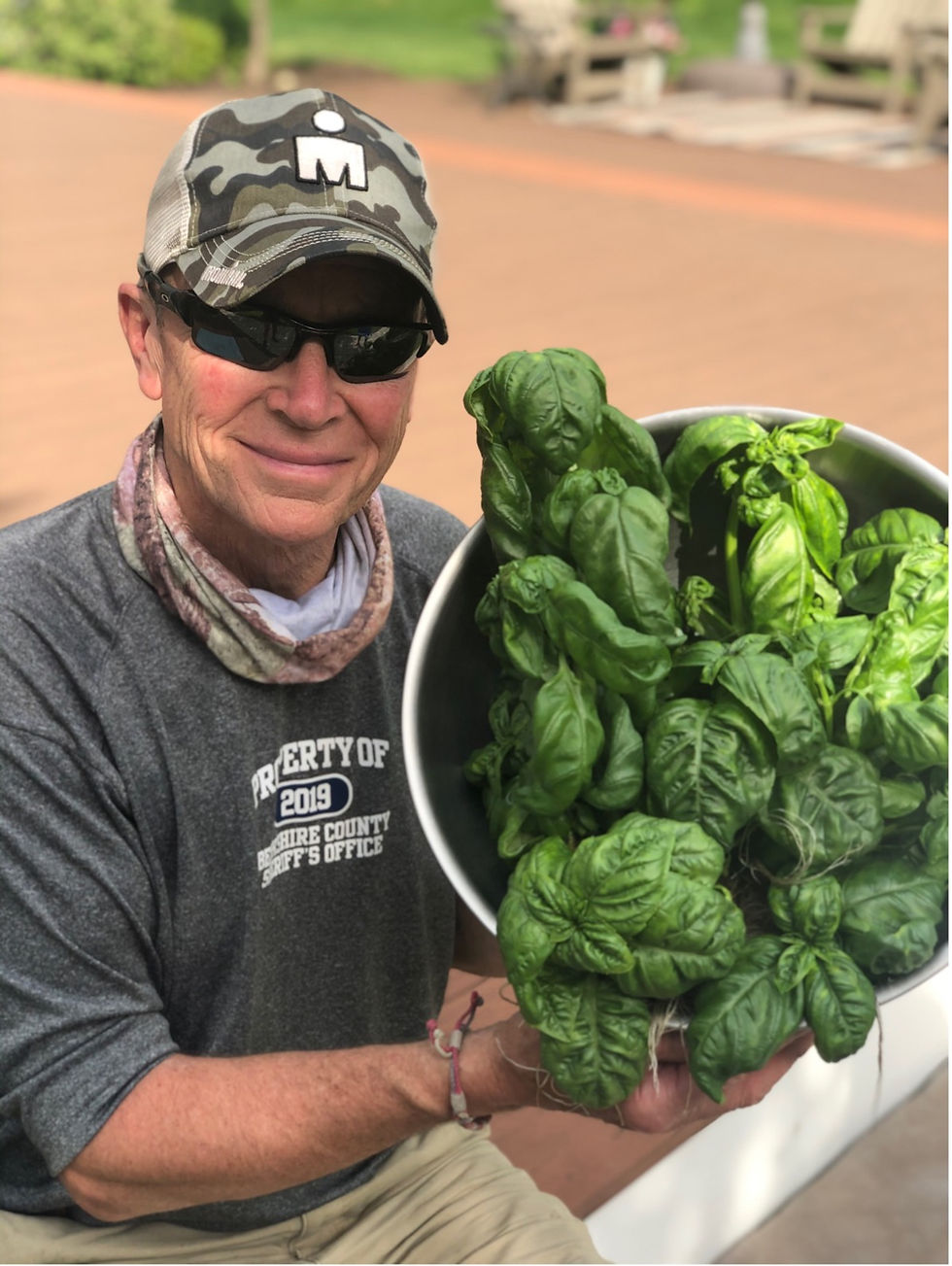
The project was fully funded through donations raised by the Berkshire Education and Correction Services (BECS), a separate nonprofit entity that has operated in collaboration with the Sheriff’s Office since 1976. Robin McGraw, president of the nonprofit organization, was the major driving force who led the huge effort of raising more than $650,000 to build the facility. McGraw spent a year raising the money, researching the farming method, and designing the facility.
“It was a lot of work raising the funds, learning about the system, and designing the facility, but we did it and I am so proud with the results for the Sheriff’s Office and Berkshire community,” McGraw said.
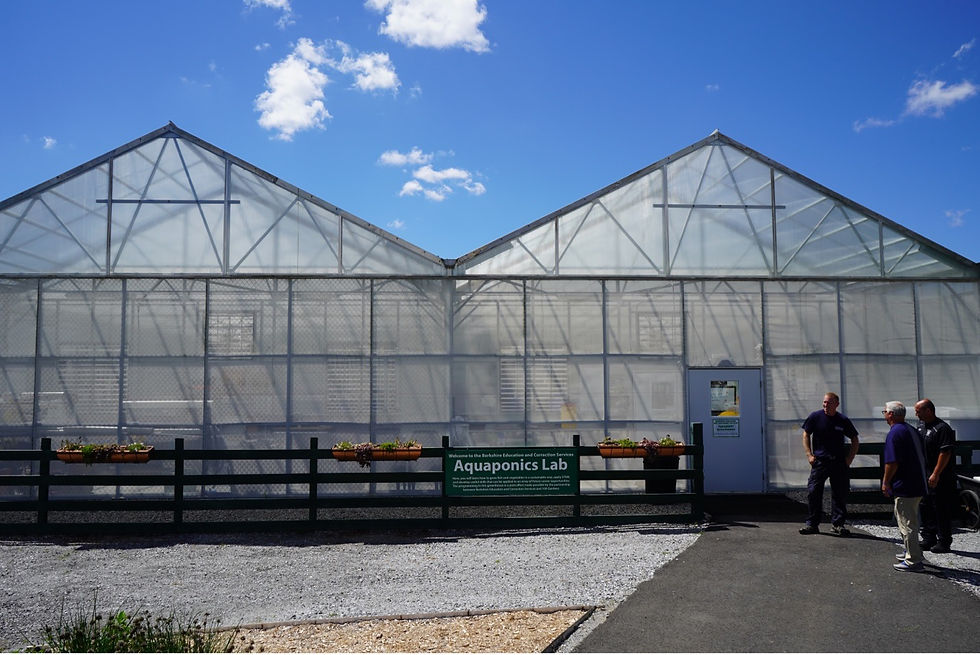
The 60-by-72-foot Aquaponics Lab was built adjacent to the Berkshire County Jail & House of Correction in Pittsfield and became operational in early 2020.
The Program

Starting in early 2020, staff began learning the system and growing leafy greens, and once restrictions eased up, qualifying inmates were allowed to take part in the program. Berkshire County Sheriff’s Office staff work alongside the inmates to run the facility — checking pressure gauges and nutrient levels, cleaning and maintaining the building and equipment, feeding and caring for the fish, and harvesting and packing produce. This is the first aquaponics greenhouse built at a correctional facility in all of New England. The growing facility is another educational component for the inmates, especially for the high-risk or high-need individuals.
“Some of the individuals who work in the greenhouse can’t participate in our work release program because of their charges, so this allows them to get up every morning and create a work ethic, a structured lifestyle, a sense of purpose, and overall confidence,” Sheriff Bowler said.
Sergeant Jason Turner oversees the operations of the Aquaponic Lab. Turner says this structured program has really made a positive impact on the inmates.
“The guys that come out here are really benefiting from this program” Turner said. “Our hope is that the inmates apply what they learn in here to whatever they do once they get out, so that they don’t go out and do what got them in jail again.”
To date, more than 40 inmates have been involved, including Courtney Cross.
“Being outside and being as free as you can be out here is phenomenal,” Cross said. “At some point you forget how it feels to just be outside and it’s literally and metaphorically a breath of fresh air.”

Cross is nearing the end of his sentence and he has plans to grow his own plants and vegetables when he is back home. Staff and volunteers also take pride in their work and can see the impact they are making on not only the incarcerated individuals, but also the community.
The Impact
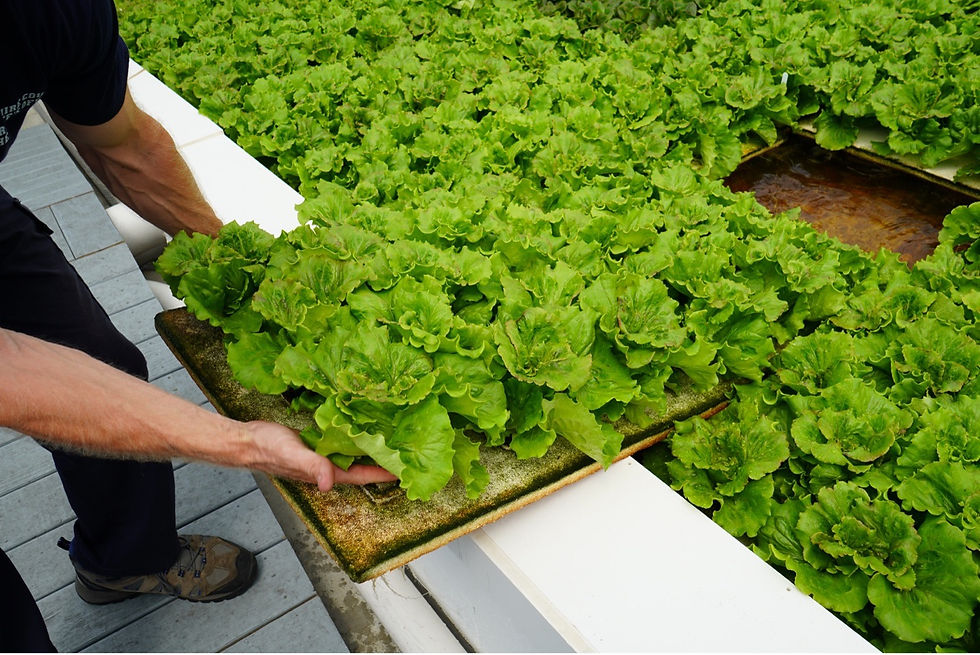
About 4,000 heads of lettuce are produced each month. About 200 heads are used in the jail to feed the staff and inmates, the rest goes to the community. Purchasing produce can get expensive. Having a ready supply throughout the year of organic, healthy vegetables saves money and helps the jail provide healthy meals.
“It’s benefitting the jail, it’s benefitting the inmates, and it’s benefitting the community,” Turner said. “Even though the inmates are working, they really come to appreciate the opportunity to be out of the jail and do good for the community.”
Each of the 30 towns and two cities in Berkshire County have received food from the Aquaponics Lab. The produce is donated to local food banks, shelters, and community kitchens.
“We know that we are helping out with the food insecurity problem here in Berkshire County, but it’s also an opportunity for our incarcerated individuals to be productive members in the community,” Sheriff Bowler said. “They are delighted to do it and feel good knowing they are helping out.”
This program connects the Sheriff’s Office with the community through food donations and education.
The Future
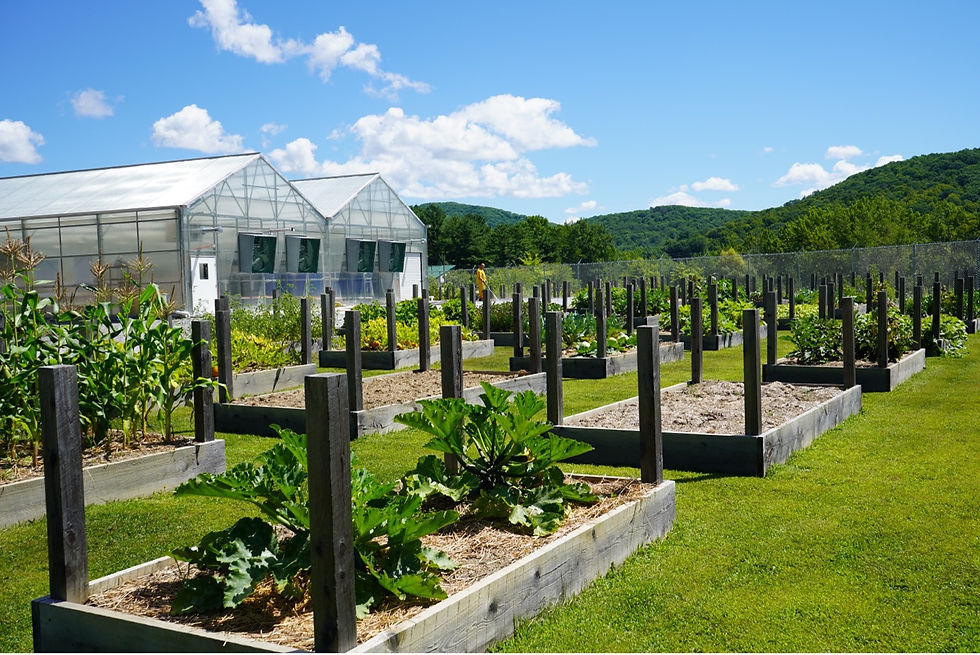
Sheriff Bowler says he wants to see the aquaponics program grow. Several raised grow beds have been built right outside the Aquaponics Lab for seasonal growing. Fruit trees and berry bushes have also been added. Staff and inmates have grown a variety of produce including flowers, pumpkins, squash, peppers, zucchini, beans, garlic, eggplant, cucumbers, and more. The facility also maintains beehives and harvests honey.
“Watching the inmates and my staff out there working hard and take pride in what they do is very gratifying to see, we are not done, but it’s amazing to see a group of people come together to help accomplish something like this,” Sheriff Bowler said.
Beyond expanding the variety of produce grown, the Sheriff’s Office also plans to expand the educational component to include the community. McGraw says the Aquaponics Lab is a valuable educational resource for area high schools and colleges, and a formal aquaponics curriculum is in the works. The facility was built with an emphasis on education, specifically the use of STEM and STEAM, has educational instructions and information written on all the walls, and was built to have 30 students in there at a time.

“The fact that all these local students will be able to come into the facility and learn is fantastic, McGraw said. “When the inmates leave in the afternoon, high school or college classes can come in the late afternoon or night, it makes the opportunities endless.”
After showing the community and the state how big of an impact the Aquaponics Lab has made, the state legislature awarded the Sheriff’s Office $150,000 a year to cover the operating costs.
“It’s a tremendous feeling of accomplishment to gain the support from the state for operational costs,” Sheriff Bowler said. “It was a lot of work raising the money to build and get the facility operational, and we are excited to have the support from the state to keep it running.”
The aquaponics program is a vital tool for not only the Sheriff’s Office, but also the community. The possibilities will only continue to grow, and the Berkshire County Sheriff’s Office continues to expand their one-of-a-kind Aquaponics Lab that teaches and provides for inmates, staff, and the community.
“Our whole mission is to create a stronger and healthier community and that’s exactly what this program does,” Sheriff Bowler said.
If anyone is interested in learning more and/or would like to learn about replicating this program, please contact Robin McGraw at berkshire.blackrock@gmail.com

Comments